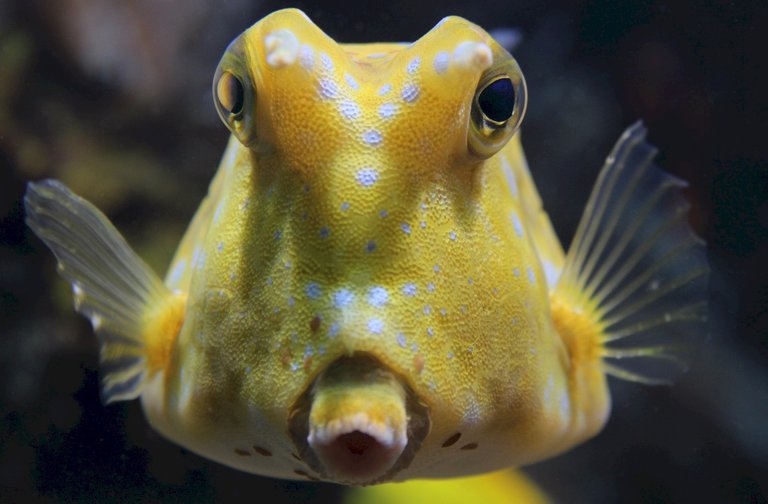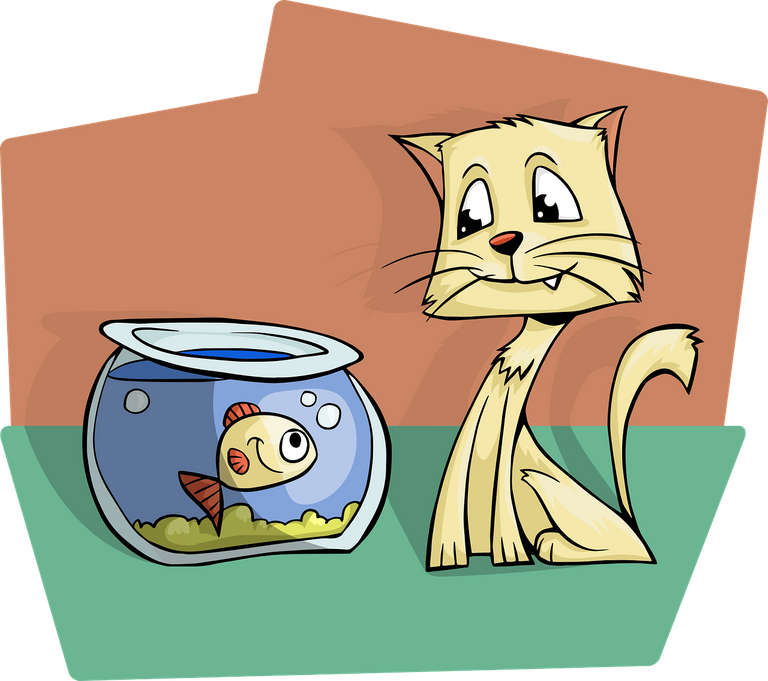
Ladies and gentlemen, it is time to move on to the next episode of “How to Cope with Stress”. Last time we discussed the two main groups of coping strategies. The first group includes those which help us get back to normality or in other words – to adapt to the situation. These are the so-called adaptive coping strategies. On the other hand, there are some behavior patterns that lead us to an increase in stress levels and perhaps mental and physical exhaustion at some point. These are the so-called maladaptive coping strategies.
Now we will practice some scuba-diving in order to explore the ocean of the adaptive coping techniques. Come on, fish and sea mammals, let’s dive!

Me, feeling enthusiastic about our trip. Yes, I know! You can SO read it on my face!
Our first stop is one of the most famous artifacts of human coping styles. Put your snorkels and let’s examine it.
Problem-focused coping strategy
Perhaps the most well-known adaptive coping strategy is called problem-focused strategy (1). In the comments of How to cope with stress (Part 1) some of you shared that whenever they face a threatening or unpredicted situation, they try to deal with it right away. This is what problem-focused coping strategy is all about. Basically, when you use it, you face the problem and try to resolve it.
Let’s see some examples:
(1) You suddenly lose your job. You try to solve the issue by starting to apply for a new one.
(2) You received a bad attestation at work which seems to be questionable. Instead of feeling sorry for yourself, you ask for a revision.
(3) You have been feeling sad and useless. You can’t stop thinking what a total failure you are. One day you decide that enough is enough and call your therapist.
The described behavior could be viewed as a problem-focused because it involves action and agency toward the distressful situation.
Actually, a friend of mine, Maya, received a bad attestation at work despite her efforts, long working hours and tons of work taken home. She had never been an underperformer before, so the attestation was a very unpleasant surprise. She presumed that it wasn’t an objective one, either as she had had some disagreement with her team-manager earlier. I think that she made a brave decision taking the issue to the higher management. Maya is a smart young woman who realized that a bad attestation would prevent her from being an appropriate candidate for better job opportunities later. So, she decided to overcome her anxiety and deal with the unpleasant situation in order to protect herself from higher amounts of stress in the future.
Well, as a result, she got an angry manager and a revised attestation. The manager wasn’t an emotional-intelligent individual, so he started bullying her. Sadly, a rise in the stress levels occurred for Maya. However, in the end, he got fired as it turned out that he had bullied too many people.
So, thumbs up for the problem-focused coping style. Oops, you don’t have thumbs, do you?
Well, then keep moving your fins, tentacles, and flippers because we are heading to the next exposition in our underwater coping museum – the appraisal-focused strategy.

This fish has fingers. Weirdo.
Appraisal-focused coping strategy
The appraisal-focused strategy requires a rethink and a reevaluation of the disturbing event you are facing (1). Usually, when people are under stress they tend to experience some errors in thinking. These are the so-called cognitive distortions. A cognitive distortion is an exaggerated or irrational thought pattern. (3)
One example of a cognitive distortion is the overgeneralization. (4)
Now, you wonder what on Earth is that. Imagine that you had an argument whit your partner. You feel so angry and frustrated that you can’t stop thinking: “He (she) is always leaving me for his (her) friends. He (she) never spends any time with me. We don’t talk anymore.” Probably this is not entirely true. Maybe you had a Friday dinner last week and you watched a great movie together. So it is not always, is it? What you are doing here is generalizing the behavior you dislike in your partner and ignoring the behavior that you like.
Let’s see another example. Let’s say that you made a mistake at work. A typical generalization is when you start thinking: “Oh, God, I am such a failure!” However, you are generalizing again. Probably four days a week you don’t make any mistakes. Does making a single mistake means that you a failure?
Overgeneralizations are a weakness of mine. I often catch myself doing them. Do you remember my introvert husband? One of my usual questions to him after he refuses to go out for a dinner, is: “We will never ever go out again, aren’t we?” Well, I am completely overgeneralizing here. Although I am pretty sure that deep inside this is exactly what he wants :D
Overgeneralizations are always combined with higher levels of negative emotions. You won’t experience this kind of cognitive distortion when you are relaxed and happy. Unfortunately, frustration always combines with unclear thinking. Despite that, it is possible to lower your distress by arguing with the overgeneralization.
The key here is to notice and question your overgeneralization. In that way, one will reevaluate the situation once again. Thus you will get your rational thinking back and your speeding emotions will slow down. The more often you engage in this process, the better you will get. At some point, you will calm yourself down pretty easy and quickly. This is a process, though. It won’t happen immediately. And it takes exercising as well. However, in the end, fighting your generalizations will save you many troubles.
Another example of cognitive distortion is the so-called catastrophizing. (4, 5).
Let’s get back to the situation we just discussed. Imagine you made a mistake at work. Then you start panicking that you will get fired. You are thinking that something very bad is going to happen. In other words – you are catastrophizing the situation and this causes you an enormous amount of stress. However, it is very unlikely to get fired for a single mistake. Appraising the event helps you deal with the increased anxiety it causes you.
My mother is the queen of catastrophizing. Every time a storm comes, she behaves as if a tsunami is going to hit us. Well, yeah, you are right, I exaggerated a bit. But you got the message.

This fish is simply catastrophizing.
Reappraisal is close to the so-called reframing. This is when you change the way you view your difficulties. It decreases the stress levels as it alters the perception of stress. In other words, you don’t see the situation as a threat anymore (6). Reframing is an extremely helpful process when it comes to mental health and personal well-being. Research shows that mothers who use a reframing coping strategy perceive their children with intellectual disabilities as a source of happiness and fulfillment, as well as a source of personal growth and maturity (2).
If you go to cognitive-behavior therapy (CBT) your therapist will most likely engage in appraising or reframing your cognitive distortions and will help you reevaluate the situation you are in.

Oh, finally, he is reframing.
Hey, are you out of breath already? Yes, I know, this tour takes a lot of time. In case you didn’t notice – it is mainly because I talk too much. So, let’s make a little break before we move to the next artifact. Next time we will look closely at a whole other list of the so-called emotional-focused coping strategies.
Now, before you go to do your fish business, let’s talk a little about you? Do you recognize yourself in any of these behavior patterns?
References:
(1) Weiten, W., Lloyed, M., Dunn, D., Hammer, E. (2008). Psychology Applied to Modern Life: Adjustment in the 21st Century. Cengage Learning
(2) Hastings, R., Allen, R., McDermott, K., Still, D. (2002). Factors Related to Positive Perceptions in Mothers of Children with Intellectual Disabilities. Journal of Applied Research in Intellectual Disabilities.
(3) https://en.wikipedia.org/wiki/Cognitive_distortion
(4) http://cogbtherapy.com/cbt-blog/cognitive-distortions-overgeneralizing
(5) https://www.psychologytoday.com/intl/blog/in-practice/201301/what-is-catastrophizing-cognitive-distortions
(6) https://www.verywellmind.com/cognitive-reframing-for-stress-management-3144872
Images (Under CC0 Creative Commons):
https://pixabay.com/en/cat-redhead-fish-vector-2149868/
https://pixabay.com/en/longhorn-cowfish-reef-fish-1746847/
https://pixabay.com/en/scuba-diver-diving-maldives-sea-261577/
https://pixabay.com/en/cat-cook-fish-kitchen-food-salmon-3721717/
All rights reserved.Created by @insight-out, Valeria Sim.
Previous articles about Coping and Stress:
How to Cope with Stress (Part 1)
How to Cope with Stress (Part 2)
Congratulations @insight-out! You have completed the following achievement on the Steem blockchain and have been rewarded with new badge(s) :
Click here to view your Board of Honor
If you no longer want to receive notifications, reply to this comment with the word
STOPDo not miss the last post from @steemitboard:
Congratulations @insight-out! You have completed the following achievement on the Steem blockchain and have been rewarded with new badge(s) :
Click here to view your Board of Honor
If you no longer want to receive notifications, reply to this comment with the word
STOPDo not miss the last post from @steemitboard: